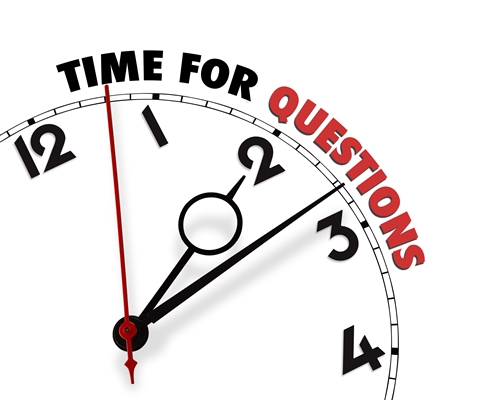Why have Question Time

Question Time is an opportunity for Members to ask questions of Ministers and Committee Chairs without notice. Through this process of seeking information, Question Time plays an important role in holding the Government to account.
Question Time usually commences at 12.00pm on Tuesdays and 11.00am on Wednesdays and Thursdays. Question Time is limited to 55 minutes or 14 answers, whichever takes longer and cannot be longer than 70 minutes. The Leader of the Opposition is entitled to ask the first question. Any Member may then seek the call, but traditionally questions alternate between Government and Opposition Members. Crossbench Members are permitted at least two questions per Question Time, at question numbers 5 and 13.
There are rules about the content of questions and to whom questions may be directed - see Chapter 10, Standing Orders 126 to 131. Answers are limited to three minutes, although the Member who asked the original question may seek additional information (limited to two minutes), and one Member may ask a supplementary question during each Question Time which counts toward the total of ten answers.
Question Time in the NSW Legislative Assembly is notoriously a loud, robust part of the day with the Chamber often living up to its name as the 'Bear Pit'.
For more information on Question Time see the Legislative Assembly Guide to Chamber Procedure.
After Question Time has concluded there are a number of items of business that are completed.
Tabling of Papers
The Speaker asks if Ministers have papers to be tabled. Papers may be tabled by the Speaker, Ministers, Chairs of Committees and the Clerk, according to statutory provision and resolution of the House, and by command of the Governor (Standing Order 264).
For more information on the Tabling of Papers see the Legislative Assembly Guide to Chamber Procedure.
Committee Reports and Referrals
The Speaker asks if there are any referrals or reports from Committees. A Committee Chair may seek the call and table a report of the Committee.
Statutory Instruments
The Speaker calls the Clerk to notify the House of statutory rules and published instruments.
For more information on the making of delegated legislation see the Legislative Assembly Guide to Chamber Procedure.
Petitions
Petitions are an important longstanding mechanism for citizens to bring matters to the attention of the Parliament. Paper Petitions with 10,000 or more signatures and ePetitions with 20,000 or more signatures are automatically set down for debate. The Speaker announces receipt of these petitions, and then calls on the Clerk to announce the receipt of other petitions (Standing Order 125A). More detail about petitions can be found on the petitions page.
For more information on Petitions see the Legislative Assembly Guide to Chamber Procedure.
